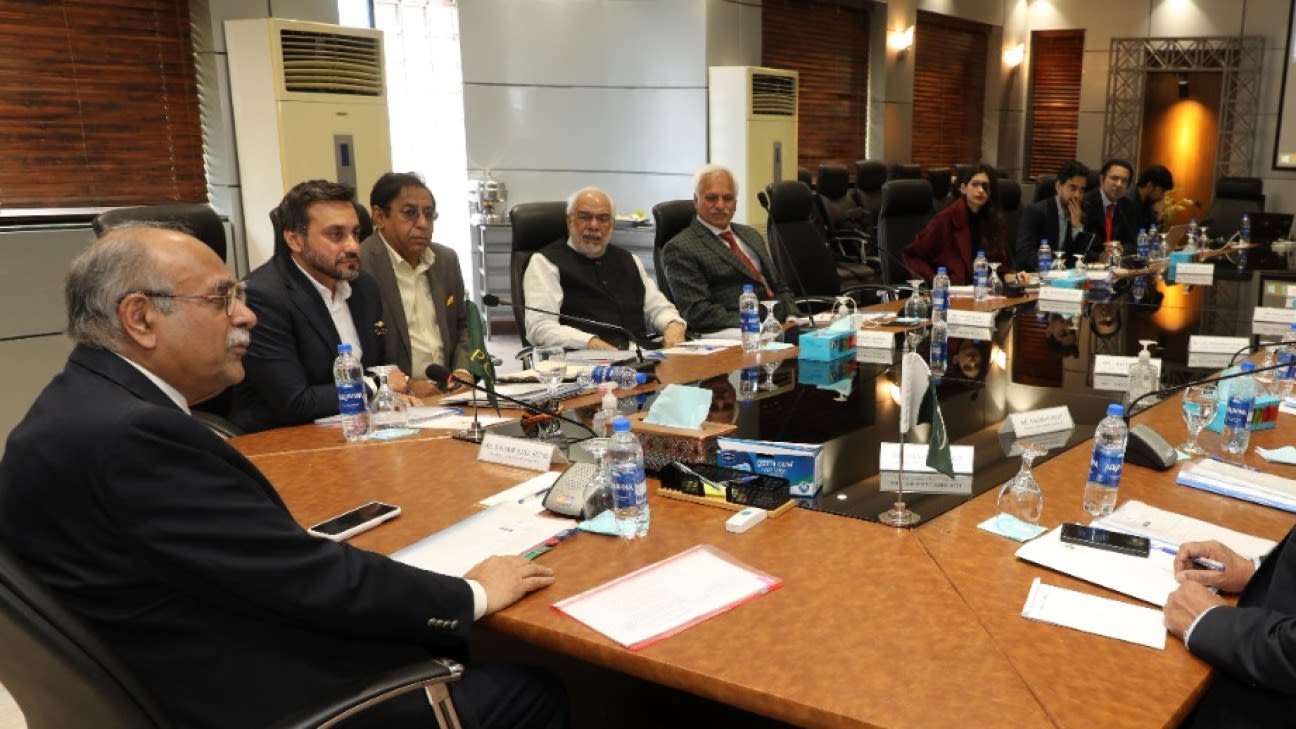The PCB’s interim management committee headed by Najam Sethi has been given an additional two to four weeks to reimplement the board’s 2014 constitution. The committee was initially given a term of 120 days, which will expire on Saturday.
Ehsan-ur-Rehman Mazari, the Federal Minister for Inter-Provincial Coordination (IPC), confirmed to ESPNcricinfo that a request for the extension has been made to the Prime Minister, and that they have requested to name two nominees on the new board, one of whom is expected to become the PCB chairman.
A copy of the IPC summary to the Prime Minister’s office, seen by ESPNcricinfo, reads: “The tenure of the management committee expires on April 21 and PCB is directed to submit a comprehensive report of activities so far after the revival of the PCB constitution of 2014 from 22 December 2022 to 20 April 2023. Following the development, the IPC is in its opinion to extend the tenure of the committee for a period of two to four weeks (maximum) to materialise the outcome of the action.”
The process will begin with the election commissioner convening a special meeting with member boards according to the 2014 constitution. The board will comprise ten members: four regional representatives (top-four teams from the Quaid-e-Azam Trophy), four representatives of services organisations (top-four department teams), and two members to be nominated by the patron at his discretion. The federal secretary of the Ministry of IPC or any other officer nominated by him shall be an ex-officio, non-voting 11th member. The term of each member of the board of governors is three years – equivalent to one term of the chairman – in a bid to promote continuity in the set-up. Among them, anyone can submit their papers to enter the election process.
The Ramiz Raja administration was removed last year as it had been functioning as per the constitution formed by Imran Khan’s government, which abolished the department structure in 2019 and had six teams representing Pakistan’s provinces in all tournaments. Imran had been a long time advocate for Pakistan’s domestic model to replicate that of Australia. The six-team model, however, was not popular outside the Imran administration and it was always likely that a new government in power would change the structure of Pakistan’s domestic cricket once again.
